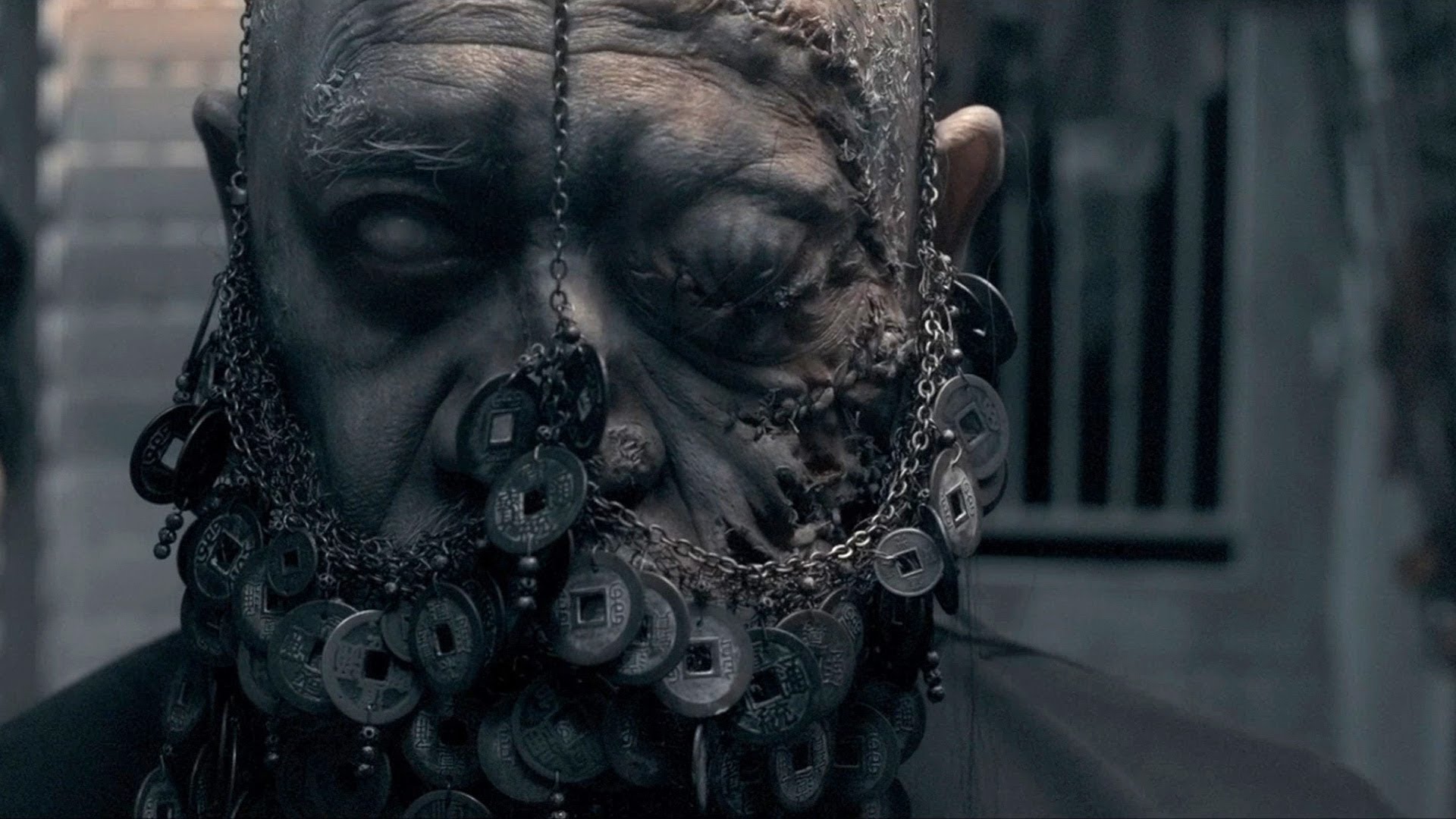
Hong Kong cinema has had an international presence since the 80s, particularly through the martial arts, wuxia and crime films, while in the 90s, arthouse films entered the equation.
However, another category that is less known in its majority also asserted its own audience, chiefly among the fans of cult and CAT III. This was the horror film, which eventually found its place in Hong Kong and international cinema with a number of masterpieces that became international sensations and in some cases, cult favorites.
The comic element, the Chinese folklore (which includes hopping supernatural creatures), and the extremity in story and depiction make these films stand apart from ones with a different origin, and actually make a genre of their own.
Here are the 15 best Hong Kong films of the category, in chronological order.
1. Black Magic (Ho Meng Hua, 1975)
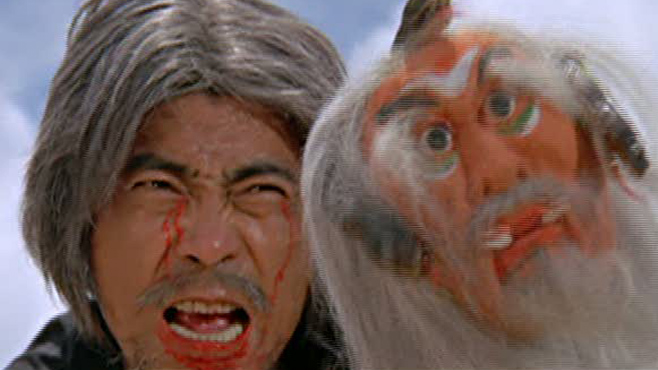
The script follows an evil sorcerer who roams the forest and sells his black magic to locals. Eventually, a widow asks him to help her seduce a young worker. His wife, though, is not so eager to let him go, and enlists the help of a good magician to counter the spells.
Ho Meng Hua directs a film that dwells on the horrific as much as the preposterous, including hallucinations at a wedding, graveyard voodoo, leaping ghost girls and even a car chase. The disgusting element is definitely not missing here, and this time emerges from the ingredients required for spells, which include human milk and rotten flesh, among others.
The film has its pacing problems, but the gory scenes and various gruesome sequences compensate as much as the performance from Ti Lung in the role of the worker. Once more, this is a film that lingers somewhere between cult and trash.
2. Encounters of the Spooky Kind (Sammo Hung, 1980)
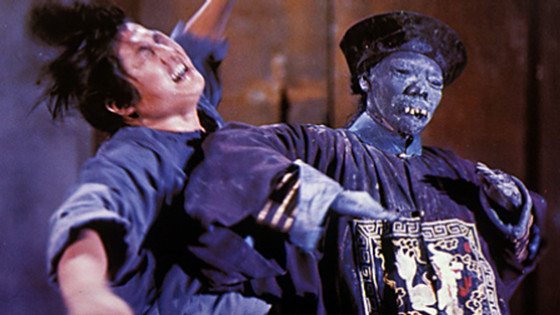
Films that combine horror with martial arts and comedy were highly popular during Hong Kong’s Golden Era, and this film is one of the most prominent samples.
The courageous Cheung is a pedicab driver who excels in martial arts, a fact he does not hesitate to brag about, and he’s constantly getting into trouble. The biggest danger, however, comes from his wife, who has an affair with Master Tam, an evil rich man who eventually hires the necromancer Chin Hoi to assassinate Cheung. After he’s tricked into spending the night in a haunted temple, Cheung meets the priest Tsui, who helps him fight his opponent’s black magic.
As usual in Sammo Hung’s productions, he is also the protagonist, with the film revolving around his astounding abilities in both martial arts and comedy. Furthermore, the mixture of action, horror and comedy is great, owing much to Hung’s elaborate direction. One of the film’s highlights is definitely the hopping zombies and the firefights in the air, while the final scene, which runs for over 15 minutes and features simultaneous fights between masters and disciples, is utterly spectacular.
Lastly, Lam Ching Ying, who would direct another film on this list later, “Mr Vampire,” has a small part in this film, exhibiting his martial arts prowess.
3. Hex (Kuei Chih Hung, 1980)
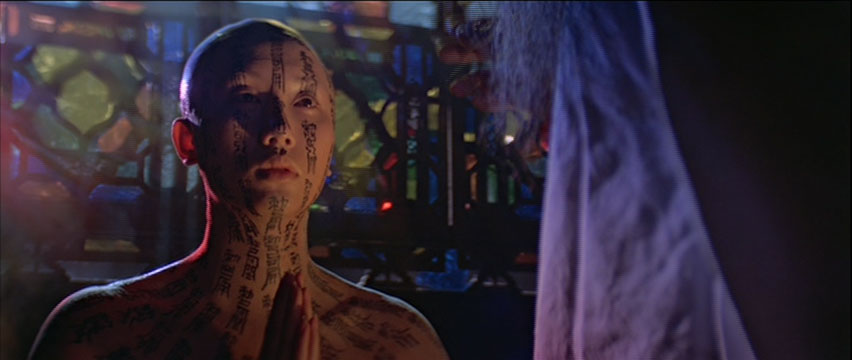
Madam Chan is a woman facing terrible issues. She suffers from consumption and her husband is a despicable man who gambles, drinks and even beats his wife, at least when he is not torturing the servants, who eventually leave the house. Madam Chan is desperate for something that will change her life, and her wish comes true when a young girl asks to work in the house.
After a series of violent episodes with her husband, the two kill him and drop his body into a pond. However, Madam Chan feels guilty, a sentiment that becomes even worse when the police start to investigate the murder, only to discover that there is no dead body in the pond.
Kuei Chih Hung directs a film that starts as an Asian variation of the French film “Les Diaboliques”, but eventually becomes a horror film in the distinct Hong Kong style, with exorcism, nudity, a plethora of ghosts attacking the living, and even forced tattoos.
Despite the evident nonsensicality, the general pace, and some preposterous special effects that somehow manage to work, it makes for a highly entertaining film.
4. Bewitched (Kuei Chih Hung, 1981)
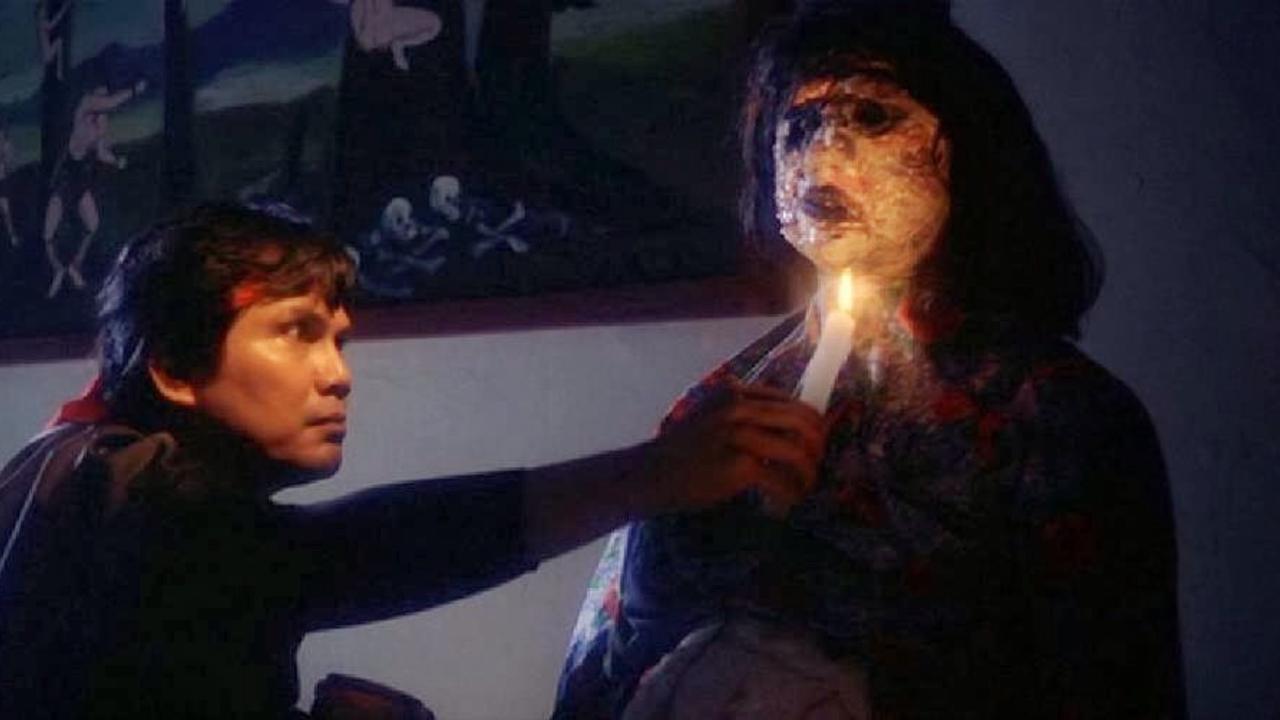
Wong Kin Sun, a detective in Hong Kong, investigates the death of a girl, only to find out that the perpetrator is her father, Lam Wai. Upon his interrogation, the father insists that he was under the spell of an evil wizard, an act resulting from his trip to Thailand. Wong decides to travel to Thailand, only to become cursed himself.
Kuei Chi Hung directs this prequel of sorts to “The Boxer’s Omen” in genuine Hong Kong exploitation fashion, combining horror with gore and many disgusting images.
However, the film is quite technically accomplished, with great art direction and visuals in general. The duel between the Magusu and the Monk is the film’s most memorable scene, and it was actually repeated in “The Boxer’s Omen”.
5. The Boxer’s Omen (Kuei Chih Hung, 1983)
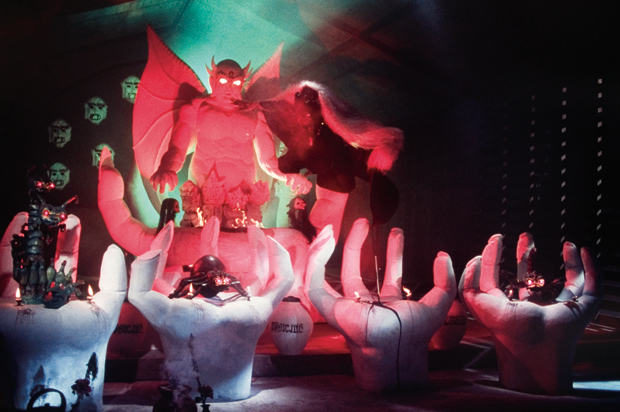
One of the most notorious Shaw Brothers’ films, the sequel to “Black Magic” is probably one of the most extreme takes on black magic.
There’s not much of a script here, but the basic idea is that Chung Hung travels to Thailand to avenge his brother, who became paralyzed after a boxing match. Once there, he ends up in a Buddhist monastery where he discovers that there is a curse on his family and that he is linked to a dead monk.
The production was very expensive, with scenes filmed in Hong Kong, Nepal and Thailand, and had a plethora of impressive special effects, but what Kuei Chi Hung eventually came up with is a succession of disgusting sequences (like the one where three wizards eat rotten food, vomit it and then pass it to each other) and magical duels with preposterous creatures.
However, the film’s almost total lack of coherence and the general craziness that permeates it, along with a number of actors that eventually became cult figures, like Bolo Yeung, have a secured a place for the film on the list with the most cult-trash productions ever made.
6. Mr. Vampire (Ricky Lau,1985)
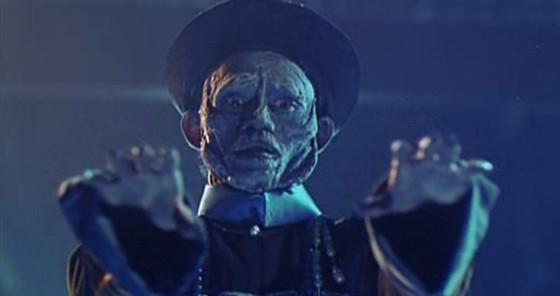
Ricky Lau’s debut film was a huge box office hit that led to the formation of a huge franchise including four sequels, a plethora of remakes, a theatrical play, a videogame and even a board game. The film was also very successful in Taiwan and Japan and established many of the genre’s distinct characteristics.
Master Kou is a Taoist priest who specializes in ghostbusting. He has two disciples, Man Choi and Chau Sang. When asked to rebury a rich man, he eventually discovers that he is a vampire and subsequently, Man Choi is infected by the vampire virus. Furthermore, Chau Sang is haunted by a female ghost who forces him to pleasure her sexually. Master Kou must exorcise the ghost while facing the vampires.
Chinese vampire legends have nothing to do with their Eastern counterparts, and this film clearly demonstrates that fact, demoting them to animated corpses who simply hop around, recognizing their enemies by their breaths.
Ricky Lau, however, makes the most of this folklore, artfully combining the humor and terror elements with plenty of cartoonish action, which benefits the most from the elaborate wirework. Lan Ching-Ying as Master Kau gives one of the best performances ever witnessed in the genre.
7. A Chinese Ghost Story (Siu Tu Ching, 1987)
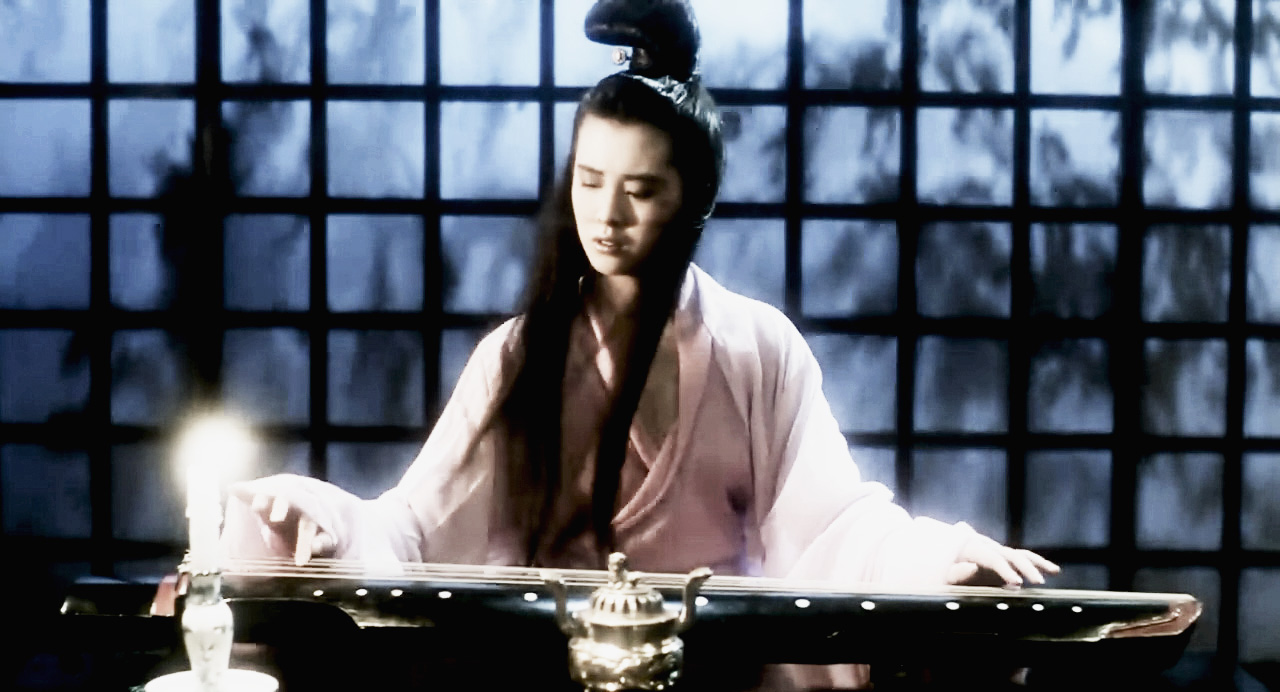
One of the films that established Tsui Hark’s legend as a producer, “A Chinese Ghost Story” was very popular throughout Asia, and initiated a trend for folklore ghost films that combined horror with comedy in the Hong Kong film industry.
Ning Tsai Shen is a tax collector who arrives in a small town to carry out his duties. Unfortunately, he ends up spending the night in the nearby Lan Ro temple. Inside the temple resides a ghost named Nie, whose duty is to enchant travelers so the tree demon she is bound to can consume their souls.
Nevertheless, this time things do not go their way, as Ning manages to escape their trap through sheer luck. Furthermore, a peculiar romantic relationship seems to form between him and Nie.
Siu Tu Ching managed to artfully combine all of the elements featured in the film, including the action sequences, the romance, and the comedy while retaining the horror element. Furthermore, he drew heavily from Leslie Cheung’s looks as Ning Tsai Shen, although the Hong Kong superstar showed glimpses of his talent, deftly handling both the horror and the comic parts of the film.